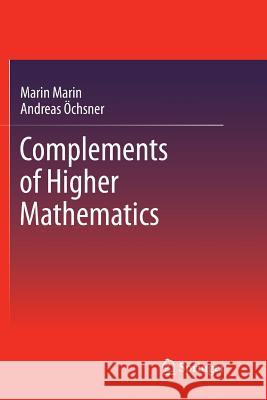Complements of Higher Mathematics » książka
topmenu
Complements of Higher Mathematics
ISBN-13: 9783319892818 / Angielski / Miękka / 2019 / 353 str.
Kategorie:
Kategorie BISAC:
Wydawca:
Springer
Język:
Angielski
ISBN-13:
9783319892818
Rok wydania:
2019
Wydanie:
Softcover Repri
Ilość stron:
353
Waga:
0.50 kg
Wymiary:
23.39 x 15.6 x 1.91
Oprawa:
Miękka
Wolumenów:
01
Dodatkowe informacje:
Wydanie ilustrowane











